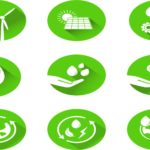The way companies run and workers pursue their careers will depend much on the future of remote work. The economic benefits and possibilities connected with remote work are showing more and more as companies adjust to technological developments and shifting labor choices.
The future of remote work will affect personal careers, businesses, and economies, as this paper investigates.
Economic Transformation
Rising remote employment marks a major change in the global economy, not only a trend. Companies are reassisting their operational models, which results in utility and real estate cost benefits. Companies can drastically lower overhead by embracing remote work. Recent research indicates that for every employee that works remotely half the time, companies can save up to $11,000 annually.
These savings can then be focused on sustainable practices, employee benefits, and innovation, therefore supporting general economic development.
Moreover, the future of remote work lets businesses leverage a worldwide talent pool. This allows companies to employ the greatest individuals wherever, therefore promoting diversity and inclusiveness regardless of distance. Companies can boost innovation and problem-solving capacity by combining many skill sets and viewpoints, therefore promoting economic development.
Changing Employment Dynamics
Workforce dynamics are also shifting as the future of remote work shapes itself. Improved work-life balance and job satisfaction follow from employees’ more control over their work surroundings and schedules. Particularly helpful for underprivileged groups and those with caring obligations is this change as remote work provides flexibility usually lacking in conventional office environments.
Furthermore, the direction of remote work promotes a performance based on results. Higher productivity can result from employers concentrating more on outcomes than on hours worked. This paradigm change helps businesses as well as enables staff members to better control their time and energy.
Urban Growth and Real Estate
One of the most significant economic impacts of the future of remote work is its influence on real estate and urban development. Urban locations can see a drop in demand for commercial real estate as less people travel to conventional offices. This change could result in a reinterpretation of metropolitan areas whereby companies transform office buildings into mixed-use projects or homes.
On the other hand, as remote workers search for more reasonably priced living quarters and a better quality of life, suburban and rural areas could experience population increase. As new neighbors bring demand for services and spending capability, this demographic change can boost local businesses. Therefore, the future of remote work might help to promote more balanced regional development all throughout the nation.
Infrastructure and Technology
The future of remote work is mostly shaped by technological innovations. Businesses are spending in strong digital infrastructure to enable remote communication and cooperation. Maintaining output in a remote location now depends critically on tools such project management software, video conferences, and cloud services.
Businesses giving cybersecurity and data protection a priority will present major financial prospects for IT companies and service providers. The need for sophisticated solutions enabling safe remote work environments is probably going to rise, generating employment and driving tech industry innovation.
Learning and Skill Development
Those who want to succeed in the future of remote work have to modify their abilities to fit the expectations of a shifting employment market. Remote work sometimes calls for knowledge of digital communication, self-management, and flexibility. Consequently, educational institutions are paying more and more attention to create courses stressing these crucial abilities.
Growing popularity online learning systems provide courses meant to equip employees for distant possibilities. This focus on lifelong learning not only improves personal employability but also promotes economic development by means of a better educated workforce.
Wellness and Health
Furthermore,the future of remote work also has profound implications for employee health and well-being. Although remote work’s freedom helps to lower stress and boost mental health, it can also cause burnout and isolation. For their remote workforce, companies are seeing the value of wellness initiatives and mental health resources.
Investing in employee well-being not only raises morale but also might help to lower turnover rates and boost production. In a distant work setting, sustainable economic development depends on a concentration on whole employee care.
In Essence,
For companies and employees both, the future of remote work is a complex phenomenon with possibilities as well as drawbacks. Companies who welcome adaptability, make technology investments, and give employee well-being first priority will probably become leaders in their fields when economic environments change.
Furthermore, the continuous development of remote work can support a more fair and inclusive workforce, therefore fostering innovation and economic development in many different localities. Understanding the financial effects of the future of remote work will be crucial as we negotiate this new period in order to build sustainable development and shape strong corporate strategy.
All things considered, the future of remote work is about our adaptation and success in an always shifting economic environment, not only about where we operate. Using the advantages of remote employment can help us to create chances that empower people, improve communities, and boost the world economy.
(Photo by LinkedIn Sales Solutions on Unsplash)
Also read:
The Economics of Forgotten Skills: Valuing Traditional Crafts in a Digital Age






